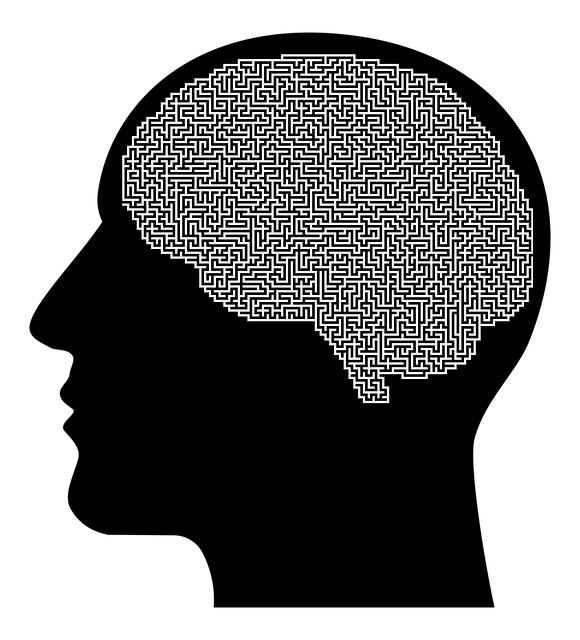Produzing Engaging Mental Wellness Podcasts: Targeting Audiences with Aurora Kaiser Permanente
Aurora Kaiser Permanente Mental Health Appointment Center emphasizes the importance of meticulous pl…….
In the ever-evolving landscape of healthcare, addressing mental well-being has emerged as a paramount concern, driving the development of specialized centers dedicated to providing comprehensive mental health services. Among these, the Aurora Kaiser Permanente (AKP) Mental Health Appointment Center stands out as a beacon of hope and innovation. This article aims to offer an in-depth exploration of AKP’s mental health initiative, its impact, and its role in shaping the future of mental healthcare. By delving into various aspects, from its operational structure to global influence and technological integrations, we will uncover the multifaceted contributions of this remarkable center.
The Aurora Kaiser Permanente Mental Health Appointment Center is a state-of-the-art facility within the Kaiser Permanente healthcare system, dedicated exclusively to mental health and behavioral wellness. It offers a comprehensive range of services, including therapy, counseling, psychiatric care, and support groups for individuals across all age groups. The center’s primary focus is on providing accessible, high-quality mental healthcare, integrating various therapeutic modalities to cater to diverse patient needs.
Key components of the AKP Mental Health Appointment Center include:
The establishment of dedicated mental health appointment centers like AKP’s is a significant step forward in the healthcare industry. Historically, mental illness has been stigmatized, often leading to inadequate treatment and support. However, growing recognition of mental health as a vital component of overall well-being has driven the need for specialized services.
AKP’s initiative aligns with global movements advocating for improved access to mental healthcare, as recognized by the World Health Organization (WHO) and various national health institutions. By creating a specialized center, Kaiser Permanente has contributed to breaking down barriers to care, ensuring that individuals seeking mental health support receive tailored, comprehensive treatment.
The influence of Aurora Kaiser Permanente’s Mental Health Appointment Center extends far beyond its local community, shaping global trends in mental healthcare delivery.
AKP’s model has gained international attention, inspiring similar initiatives worldwide. The center’s success lies in its adaptability, demonstrating that a dedicated mental health focus within a large healthcare system can be both efficient and cost-effective. Many countries are adopting this approach to strengthen their mental healthcare infrastructure, particularly in regions with limited resources.
While the global trend shows an increasing emphasis on mental health, regional disparities persist. In some developing nations, cultural barriers and limited financial resources pose significant challenges. For example, in rural areas of Africa or Asia, access to specialized mental healthcare remains scarce, highlighting the need for innovative solutions like AKP’s telehealth services.
The mental health sector has experienced substantial growth, driven by rising awareness and increasing demand for personalized care. This trend presents significant economic opportunities, with governments and private investors recognizing the value of investing in mental healthcare infrastructure.
AKP’s Mental Health Appointment Center operates within a structured market environment, where competition for top talent and advanced treatment modalities is intense. The center’s financial success can be attributed to its ability to attract and retain skilled professionals, efficient operations, and patient satisfaction.
Dedicated mental health centers like AKP play a crucial role in reducing the economic burden of untreated mental illness. By providing early intervention and evidence-based treatments, these facilities can prevent more severe, costly conditions from developing. This cost-effectiveness is particularly evident in the long-term management of chronic mental health disorders.
Technology has revolutionized mental healthcare, and AKP has been at the forefront of this transformation. The center embraces digital tools to enhance patient engagement, improve therapy outcomes, and expand access to care:
These technological advancements have had a profound impact on patient care:
The operation of mental health appointment centers is guided by a web of policies and regulations that vary across jurisdictions. These frameworks ensure ethical practice, patient privacy, and quality care.
AKP’s Mental Health Appointment Center adheres to these policies and regulations, shaping its operational practices and service offerings:
Despite its numerous achievements, AKP’s Mental Health Appointment Center faces challenges in providing comprehensive mental health services:
To overcome these challenges:
AKP implemented a comprehensive adolescent mental health program, addressing the growing concern of rising suicide rates among young people. This initiative focused on early intervention and family-centered care. By providing group therapy sessions tailored to adolescents’ unique challenges and offering parental education, the program significantly improved treatment outcomes. The success lies in its holistic approach, combining individual therapy with peer support and family involvement.
Recognizing the unique mental health needs of veterans, AKP established a specialized program integrating mental health services with primary care. This model ensures that veterans receive seamless, coordinated care, addressing both physical and psychological injuries. The center’s collaboration with local veteran affairs organizations has led to improved access to services and enhanced patient satisfaction.
In a remote agricultural region, AKP introduced telehealth services to bridge the gap in mental health care availability. This initiative enabled individuals in rural areas to access psychiatrists and therapists via video conferencing. The program’s success was evident in increased patient engagement and improved treatment outcomes, demonstrating the potential of technology in expanding mental healthcare reach.
The future of mental health care is poised for further technological advancements:
The trend towards integrated healthcare is set to continue, with mental health services seamlessly incorporated into primary care settings. This approach facilitates early identification and intervention for mental health issues, improving overall population well-being.
International collaboration will play a pivotal role in addressing global mental health challenges. Knowledge sharing between countries can lead to the development of best practices and innovative solutions tailored to diverse cultural contexts.
The Aurora Kaiser Permanente Mental Health Appointment Center exemplifies the power of dedicated, comprehensive mental health services within a large healthcare system. Its success story highlights the potential for such centers to transform mental healthcare delivery, improve patient outcomes, and reduce societal burdens associated with untreated mental illness.
As we look ahead, the future prospects for mental health appointment centers like AKP’s are promising, driven by technological advancements, integrated care models, and global collaborations. By overcoming challenges and leveraging emerging trends, these centers can continue to revolutionize mental healthcare, ensuring that individuals worldwide have access to the support they need for their mental well-being.
Q: What makes Aurora Kaiser Permanente’s Mental Health Appointment Center unique?
A: The center’s key strengths lie in its comprehensive approach, integrating various therapeutic modalities, specialized programs, and advanced technological integrations. Its multidisciplinary team ensures a holistic treatment experience tailored to diverse patient needs.
Q: How does AKP ensure patient privacy and data security?
A: Strict adherence to HIPAA standards and guidelines ensures the protection of patient information. The center employs robust cybersecurity measures to safeguard electronic health records, maintaining patient confidentiality.
Q: Can you explain the role of technology in modern mental healthcare?
A: Technology plays a transformative role by improving access to care, enhancing patient engagement, and enabling efficient therapy delivery. Telehealth, mobile apps, AI chatbots, and advanced analytics are just a few examples of technological advancements shaping the future of mental healthcare.
Q: What challenges do mental health appointment centers face in providing services globally?
A: Global centers may encounter challenges related to cultural differences, resource allocation, staffing, and varying levels of technological infrastructure. However, these can be addressed through tailored interventions, partnerships, and knowledge sharing.
Q: How can we reduce the stigma associated with seeking mental health support?
A: Stigma reduction requires comprehensive public education initiatives, celebrity advocacy, media representation, and community engagement. Mental health awareness campaigns can play a significant role in encouraging individuals to seek help without fear of judgment.

Aurora Kaiser Permanente Mental Health Appointment Center emphasizes the importance of meticulous pl…….

Aurora Kaiser Permanente mental health appointment centers prioritize cultural sensitivity as a corn…….

Burnout among mental health professionals at centers like Aurora Kaiser Permanente (AKP) is addresse…….